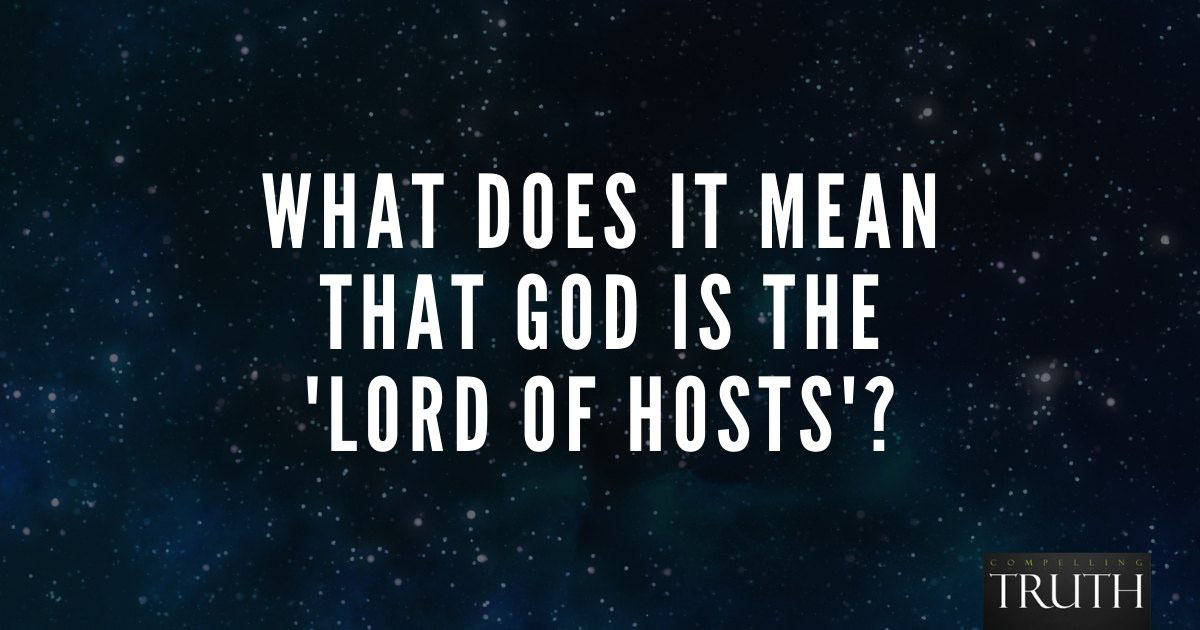

The greatest intensity of the prophetic use of this name is in the context of God’s judgement.

As the LORD of hosts he is not a God who can be ignored or trifled with he is a God who must be taken into account. It is a name that is used to convey the awesome unlimited power and authority of God to set the standard, to judge and to save. However, the Old Testament uses this name, Jehovah-Sabaoth, without any reference to these angelic hosts. ‘Do you think I cannot call on my Father, and he will at once put at my disposal more than twelve legions of angels?’. ‘Suddenly a great company of the heavenly host appeared with the angel’. ‘You give life to everything, and the multitudes of heaven worship you’. ‘Micaiah continued, “Therefore hear the word of the LORD: I saw the LORD sitting on his throne with all the host of heaven standing on his right and on his left”’.
#Lord of hosts full
“Those that are with us are more than those who are with them.” And Elisha prayed, “O LORD, open his eyes so he may see.” Then the LORD opened the servant’s eyes, and he looked and saw the hills full of horses and chariots of fire all around Elisha’. “Oh, my lord, what shall we do?” the servant asked. ‘When the servant of the man of God got up and went out early the next morning, an army with horses and chariots had surrounded the city. We catch glimpses of what it means from these scriptures: What does it mean? We might be tempted to understand it solely as a reference to all the human armies which God has at his disposal and command to execute his judgement on the nations. While occurring several times in the books of Samuel, Kings and Chronicles, and more in the Psalms, this name becomes very frequent in the prophets – including about sixty times in Isaiah, over eighty times in Jeremiah, and dominates Zechariah and Malachi. ‘You come against me with sword and speak and javelin, but I come against you in the name of the LORD Almighty ( = the LORD of hosts), the God of the armies of Israel, whom you have defied’. It is in this name that the young David took up Goliath’s arrogant challenge: This is how the desolate, childless Hannah addressed God in her prayer for a son.

In addition, the NIV ‘LORD God Almighty’ is frequently a translation of Jehovah El Sabaoth - ‘the LORD the God of hosts’.Ībsent from the books of Moses, ‘the LORD of hosts’ is found first in 1Samuel. Where you read ‘LORD Almighty’, re-translate as ‘the LORD of hosts’. If you are using the NIV the key is to look for the name ‘LORD’ before the added ‘Almighty’. This is camouflaged in the NIV, where it is translated ‘the LORD Almighty’, which makes it difficult to distinguish from God Almighty – El Shaddai. This week’s thought, Jehovah Sabaoth – the LORD of hosts, occurs over three hundred times.
#Lord of hosts series
The previous thought in this series was ‘Jehovah Shalom’ – the LORD is peace, which occurs only once in the whole Bible.


 0 kommentar(er)
0 kommentar(er)
